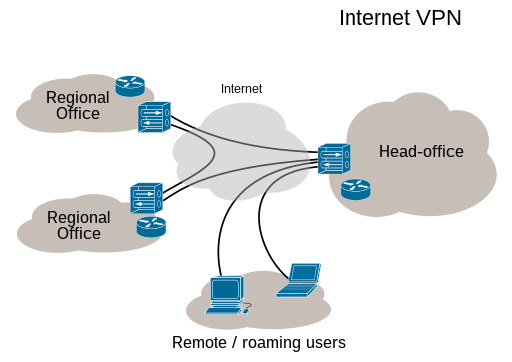proxyMore than 600 data breaches occurred in the U.S. last year, as well as nearly 50,000 reported security incidents, according to an annual Verizon report. A large portion of those breaches were accomplished on mobile devices, and with public Wi-Fi everywhere you turn, a VPN could make or break your data security.
Photo by Ludovic.ferre via Wikimedia Commons
How Hackers Get In
While free public Wi-Fi services are popular, there are risks associated with the convenience. Mobile employees open the door for unscrupulous data thieves when they fail to use common sense before signing onto email and financial websites on the road with company equipment.
Employees who assume the strongest Internet connection from McDonald’s network in the parking lot make it easier for scammers who could be lurking nearby with a similar network name. Bolt Insurance executives found many employees fail to log into encrypted, secure https websites because they simply forgot to confirm the address before signing in. Bolt suggests using Virtual Private Network software for all employees who work on the road.
Securing Data with Virtual Private Networks
A VPN is simply a network of computers joined together across multiple locations to add security and privacy via authentication hardware and software. Access to the network is allowed with unique passwords or PIN identifiers. Internet Service Providers, http://www.internetserviceproviders.com, touts the ease and flexibility of VPNs for business owners. Security and privacy are the most practical benefits for business owners.
Free Services
Both privacy and security protocol should be carefully examined before signing up for a free service. Some no-charge VPN providers log all activity, and most users are subjected to contextual ads based on past activity online.
Businesses that want to take a trial run with a free service should remember all data is available to the host provider. Choose websites to visit with caution during the trial period. Some experts suggest only using free services offered by well-established providers to avoid a fly-by-night scam artist.
Paid Services
Paid services vary widely among providers. Prices vary based on features, storage space and the number of exit points. Depending on the nature of the business, monthly rates are as low as $5 per month and can go up to several hundred dollars per year. Even with paid services, it is important to look for secure connections, i.e. SSL or IPsec, when selecting a provider.
Exit Locations
Free services usually have fewer exit points. An exit proxy, or location, is a connection setting that allows you to “appear” in another network or country, thus adding a layer of anonymity and security. As a general rule, the higher the number of exit options available from your VPN, the more discreet your activities are online.
Beyond the number of available locations, it is important to find a VPN provider that offers exit proxies that fit business needs. If a service provider offers 18 exit points, but doesn’t offer an exit in Panama, and the business wants to connect with other computers in Panama to capture live television broadcasts or connect with remote employees securely, the service won’t provide the most beneficial features — regardless of the price. Choosing a provider that offers a variety of exit points that fit company networking goals is essential to finding a best fit.
What recommendations do you have regarding VPN? Share them in the comments.

